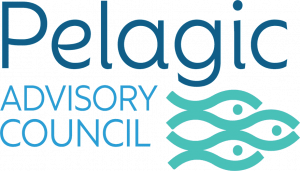| PelAC recommendation on harmonising the implementation of the bycatch TAC for Western horse mackerel | Following the PelAC rebuilding plan for Western horse mackerel sent to the Commission in July 2020, the Pelac now recalls its recommendation for an urgent benchmark dedicated tot he three horese mackerel stocks. The PelAC also wishes to point out that the decision for setting a ‘bycatch’ TAC for Western horse mackerel for 2023, has led to unforeseen pratical issues in the implementation by Member States, jeopardising the level palying field for EU industries fhishing this stock. In this recommendation the PelAC outlines the difficulties encountered in the implementation of the bycatch quota in 2023 across the different Member States based on feedback received by its industry members, and asks for Commission support to establish coherence between MS approaches to avoid similar difficulties in 2024, as a fallback solution in the event that it is not possible to hold a benchmark in 2023. | 2023 | Letter to COM |
| Joint Recommendation NWWAC/PelAC on Sprat in English Channel | The NWWAC and PelAC sent a joint recommendation on Sprat in the English Channel following the ICES advice. | 2023 | Letter to COM Commission Response |
| Joint ACs letter on Commission requests for ICES training | Following the recently provided courses by ICES at the request of DG MARE, NWWAC, LDAC, CCRUP, BSAC and PelAC thank DG MARE for the opportunity but regret that participation by both members as well as the Secretariats was severely limited due to late notification. We would appreciate if requests made by the Commission to ICES for training in the future could include notification from the Commission to the AC Secretariats so that the ACs are aware of the planning as early as possible. | 2023 | Letter to COM Commission Response |
| PelAC letter requesting an opportunity to convey PelAC views on Energy tranistion | Following the PelAC virtual workshop on 20 April 2023 on Energy transition in the pelagic sector, the PelAC would greatly appreciate an opportunity to report on these workshop outcomes though a speaking slot during the event on the Energy Transition in the EU fisheries and aquaculture sector organised by the Commission on 16 June 2023. | 2023 | Letter to COM Commission response |
| PelAC letter on the Coastal States sharing status for the Northeast Atlantic mackerel stock | The PelAC fully supports the European Commission’s commitment and efforts to find a rational sharing arrangement between all involved Coastal States for the Northeast Atlantic mackerel stock, but once again, observes the real risk of parties persisting with the setting of excessive unilateral quotas, which would lead to another year of catches exceeding the Total Allowable Catch (TAC) that has been set in line with scientific advice for 2023. The PelAC again underlines its deep concerns regarding the consequences of other parties maintaining these potentially repeated irresponsible decisions, that run contrary to the UN Convention on the Law of the Sea, and particularly the 1995 Straddling Stocks Agreement, effectively deeming this approach IUU fishing. | 2023 | Letter to COM Commission Response |
| PelAC letter on the benchmark meeting for western horse mackerel in 2023 | In this letter the PelAC underlines the importance that the terms of reference of the benchmark clarifies the organization and assignment of individuals to carry out the various tasks detailed in our action plan for Western horse mackerel in particular. Furthermore, the PelAC notes that the horse mackerel assessments currently do not include genetic information related to stock identification. | 2023 | Letter to COM Annex I Commission Response |
| NWWAC/PelAC joint letter regarding the OREDP II Advisory Group | Following the successful joint NWWAC/PelAC Briefing on the Maritime Area Planning Act 2021 on 19 January, the NWWAC in conjunction with the PelAC, request with this letter to be included in the relevant stakeholder working groups on this topic in Ireland. | 2023 | Letter NWWAC PelAC |
| PelAC response on the Multiannual Plans for the North Sea and the Western Waters | The PelAC informed the Commission that after a discussion at the Working Group II meeting held on 22 February in Utrecht, the PelAC members concluded that it was not within the competence of the PelAC to submit a response to this specific consultation, since the pelagic species covered by the MAPs fall outside of the PelAC’s remit. | 2023 | Letter to COM Request by COM |
| Call on the EC to support the ACs work | The Advisory Councils called on the European Commission to support their work on attracting new members by increasing the visibility of ACs as well as promoting their achievements. The ACs collectively feel there is a role for the Commission to play, and that efforts in this regard could be strengthened. | 2023 | Letter to COM |
| Call for urgent benchmark meeting for Western horse mackerel in 2023 | PelAC requests an ICES (inter) benchmark meeting in 2023 that is jointly dedicated to the three horse mackerel stocks (Western, Southern and North Sea) combined, in order to secure an updated evaluation of the PelAC rebuilding plan for Western horse mackerel, as well as enable timely preparations of the negotiations for 2024 TACs. | 2022 | Letter to COM Commission Response |
